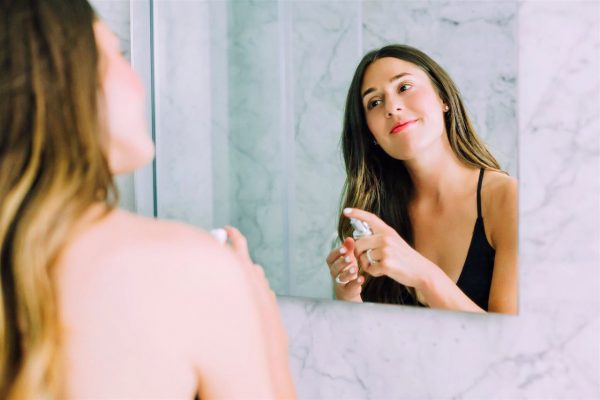 Figuring out what’s best for your skin can feel like solving a difficult mystery — everyone’s condition is unique, there are countless treatment options and people will do almost anything for a clear complexion.
Figuring out what’s best for your skin can feel like solving a difficult mystery — everyone’s condition is unique, there are countless treatment options and people will do almost anything for a clear complexion.
“When it comes to your skin, there are many elements to consider,” says Dr. David Lortscher, board-certified dermatologist, CEO and founder of Curology. “Clogged pores, acne and other common issues can be a result of age, genetics, lifestyle and environmental factors. I often hear about common misconceptions that cause otherwise well-meaning people to make mistakes that trigger larger skincare problems.”
To help people better understand skincare and take control of their daily regimen, Dr. Lortscher shares the top misconceptions about skincare and acne.
Misconception: Exercise and sweat can cause acne.
Fact: Sweating while exercising doesn’t cause acne. The eccrine glands produce sweat and the sebaceous glands produce oil — so revving up the sweat glands doesn’t actually turn on the oil glands involved in acne breakouts. The truth is sweating and humidity can aggravate breakouts by giving the bacteria on the skin a better environment to grow.
Cleansing is key post-workout, but keep in mind vigorously cleansing your skin can also be a source of friction that aggravates acne. The best strategy is to splash comfortable-temperature water on your face and neck, then pat dry gently.
Misconception: Chocolate and greasy foods cause acne.
Fact: Many people have heard that chocolate and junk food are the worst foods for your skin, but modern science hasn’t found a direct link between acne and oily foods.
Diets are like acne treatments: highly individual. That’s not to say your eating habits can’t affect your skin. Eating simple carbs and sugar raises your blood sugar levels, causing your body to produce excess insulin, in turn stimulating oil production and leading to more inflammation and increased acne severity.
Misconception: DIY skincare and home remedies are good for your skin.
Fact: The DIY craze has extended to skincare routines, giving people ample ways to create their own remedies at home. However, it’s wise to be careful about the ingredients applied to your skin.
Some people try baking soda as a cost-effective scrub or mask. Baking soda is pH 9 and the pH of the skin is 4.5-5 or so. Therefore, scrubbing your face with a baking soda paste can be harsh and disturb your skin’s natural barrier, leading to red, raw and sensitive skin and leaving it susceptible to breakout.
Others suggest lemon juice as a home remedy for acne but it can cause significant dryness, redness and irritation. Lemon juice may have an exfoliating effect on the most superficial dead skin cells, but there are better ways to treat your acne.
If you’re fed up with DIY remedies and over-the-counter products just haven’t worked for you, you have options. Try custom prescription skincare like Curology, a service that gets you expert dermatology care from the comfort of your home. Just take a few photos and a skin quiz to get a prescription formula customized to your individual needs.
Misconception: You can make your pores smaller.
Fact: Most people want smaller pores, but in reality, you can’t change the size or force them “open” or “closed.”
Pore size is genetic; you can’t shrink them or make pores go away. To keep large pores from worsening, treat acne breakouts, don’t pick and use sun protection. Sun exposure breaks down collagen, which is the support structure surrounding the pores, so pores do appear larger as you age.
Misconception: You only need to wear sunscreen on sunny days.
Fact: It doesn’t matter if it’s sunny or cloudy; if you plan to spend time outdoors, wear sunscreen daily. It is estimated that damage caused by ultraviolet rays from the sun is responsible for up to 80 percent of skin aging.
SPF is a measure of a sunscreen’s ability to prevent UVB from damaging the skin. Most sunscreens with an SPF of 15 or higher do an excellent job of protecting against UVB. For extended outdoor activity, use a water-resistant, broad spectrum (UVA/UVB) sunscreen with an SPF of 30 or higher.

